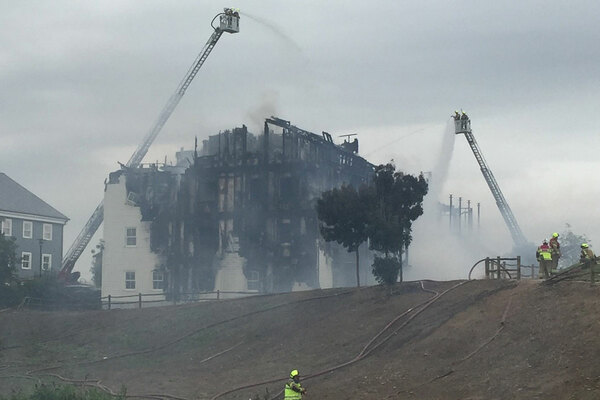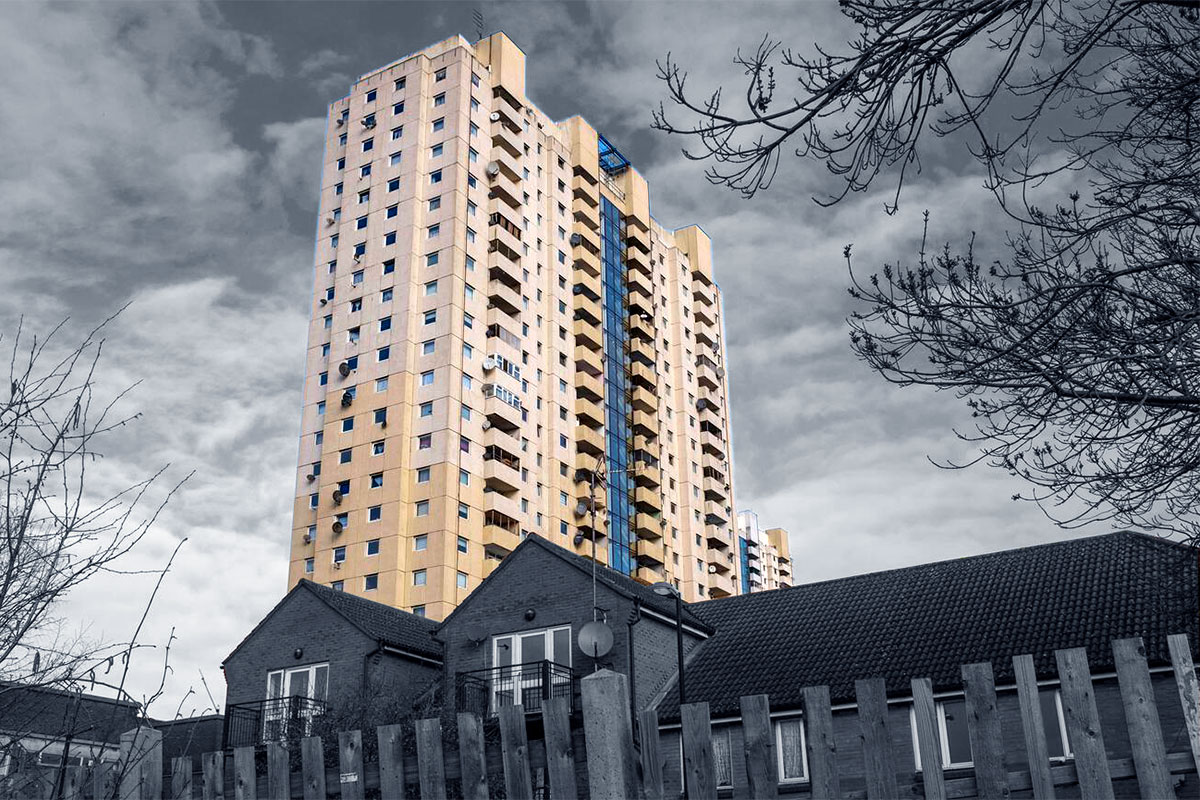You are viewing 1 of your 1 free articles
Housing select committee calls for ban on desktop studies
The Housing, Communities and Local Government Select Committee has called for a ban on desktop studies used to sign off cladding on tower blocks.
The select committee’s call for a ban echoes the Royal Institute of British Architects, the Local Government Association and nearly 50 MPs who have all called for the controversial method of signing off on cladding to be banned.
The Ministry of Housing, Communities and Local Government (MHCLG) is currently running a consultation on desktop studies, which includes the option to ban them. However, the government’s impact assessment has not included a ban and a notification to the EU about potential changes did not include a ban.
Desktop studies can be used to sign off cladding without testing how it reacts to fire. Through a desktop study manufacturers can look at previous test results and try to predict how the cladding would react to fire.
In some instances, cladding that has been approved by a desktop study has later failed fire safety tests.
Clive Betts, chair of the Housing, Communities and Local Government Committee, has written to James Brokenshire, the new housing secretary, describing the use of desktop studies as “clearly dangerous”. He has called for them to be prohibited as long as combustible materials are permitted to be used in the cladding of tower blocks.
He said: “We are concerned that the overuse of desktop studies may be a contributory factor to a weaker, less stringent regulatory regime and increases the likelihood of dangerous materials being used on high-rise residential buildings.”
The committee has called on Dame Judith Hackitt, who is leading a review into building regulations and fire safety, to recommend a ban on combustible materials used on tower blocks. However, Dame Judith has indicated she does not favour a “prescriptive” approach.
In his letter Mr Betts said that while the committee anticipates that the review "is likely to conclude in favour of a risk-based approach" its "strongly held view" is that "some prescription will be necessary" and a regulatory system that does not ban combustible materials on tower blocks "would be a serious mistake".
The MHCLG has been approached for comment.
What are desktop studies, and why are people concerned?
Building regulations say cladding systems which contain combustible insulation must be shown to meet specific standards based on “full scale test data”
A ‘desktop study’ is a means of making an assumption about whether or not a cladding system would meet these standards without actually testing it.
It involves using data from previous tests of the materials in different combinations to make assumptions about how it would perform in a test.
This is not specifically provided for in the current guide to building regulations, but the government believes they are loosely drafted to an extent which makes it permissible. It plans to redraft the guidance to include specific rules on the use of desktop studies for the first time.
The alternatives to a desktop study are full scale testing or not using combustible materials.
People are concerned about the process because it is based on assumption: at least one system cleared through a desktop study has failed a full scale test.
This is important for fire safety because mistakes may mean unsafe cladding systems being cleared for use on tall buildings.











